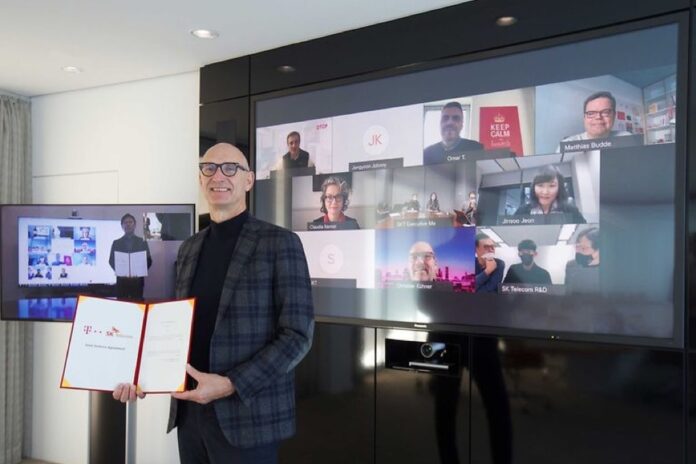German telcos signal a 600 MHz battle
The CEO of Telefónica Deutschland (O2) has demanded more spectrum for 5G services in Europe, reports Anne Morris in Light Reading. Markus Haas told German newspaper Tagesspiegel that frequencies such as 600MHz should be allocated to 5G signalling in Germany especially now that 1&1 has crowded the 5G market. It’s a battle that all European telcos should get behind, according to Haas.
Though 600MHz is currently used for broadcasting by the programme making and special events (PMSE) sector, Hass cited the annexing of the 700MHz and 800MHz frequencies by mobile operators as proof of the greater need. “If we had listened to broadcasters we would still be living in the stone age of mobile communications today,” said Haas. It’s OK for the metropolitan elite perhaps, but these days the rural areas of Germany have to get their mobile Internet via the alternative frequencies.
Telefónica and other mobile network operators (MNO) in Europe won’t get access to 600MHz frequencies for years, unless priorities change. The 470-960MHz band will be among a number of bands that will be considered for mobile use in Region 1 (which includes Europe) at the next World Radio Conference in 2023 (WRC-23), according to Analysys Mason.
Haas isn’t the only CEO hoping that 600MHz frequencies will be released for mobile communications in 2030. Analysys Mason says there’s “broad support” from other MNOs for a co-primary mobile allocation in the 600MHz band in Europe. After all the US and Canada have done it, as have Saudi Arabia, Hong Kong and India.
Trade body the GSMA says that typically 2GHz of mid-band spectrum will be needed by each market to support the growth of 5G by 2030, with the low-band spectrum being used to raise the speeds of delivery in rural areas. Will the German MNOs get their way? If so, could this set a precedent for the rest of Europe? Haas is frustrated by the expensive spectrum auctions that demotivate investors in network building. Timotheus Höttges, CEO of Deutsche Telekom, was similarly upset when the German regulator Bundesnetzagentur (BNetzA) proposed yet another spectrum auction in 2024, as part of a delicate balance of the 800MHz and 900MHz frequencies.
Höttges said DT is “totally against” a spectrum auction in 2024. “With all the buildouts which our industry is carrying out, with all the cost increases [caused by] energy prices, with all the challenges we face from our construction companies: now the German regulator thinks it’s a great idea to have an auction in 2024 on this spectrum,” said Höttges.
BNetzA will continue holding the industry to auction, but it needs to expedite the process as usage rights in Germany for 800MHz, 1,800MHz and 2,600MHz bands expire at the end of 2025. As things stand, it is proposing a spectrum swap, as a compromise. This would involve extending 800MHz usage rights from 2025 until the end of 2033. In turn, 900MHz rights would expire at the end of 2025 rather than at the end of 2033. The 900MHz spectrum would then be awarded instead of the 800MHz spectrum.
“Such a swap would secure the existing LTE coverage on the basis of the 800MHz spectrum for the longer term, while also giving new entrants an opportunity to receive spectrum below 1GHz,” said BNetzA. Since its consultation period finished in November 2022, the next steps should be revealed soon, said Light Reading.


